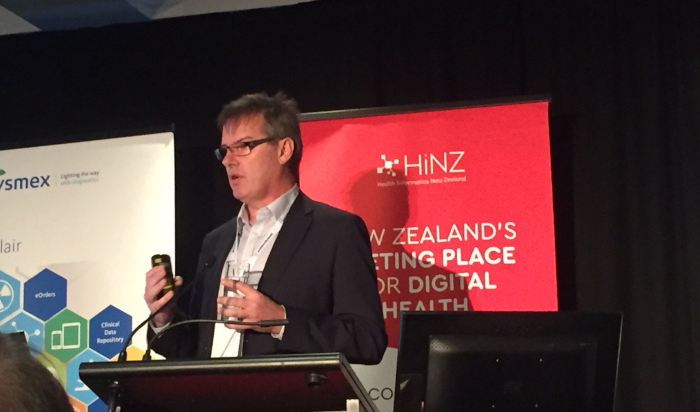
New Zealand’s Ministry of Health is going to Cabinet this June to get approval to develop a detailed business case for a national Health Information Platform.
The Ministry has moved away from the idea of building a single Electronic Health Record, towards developing a national HIP that will enable data about a single patient to be shared, said deputy director data and digital Shayne Hunter.
Hunter was a keynote speaker at the Emerging Tech in Health conference in Christchurch on May 21.
“We are moving beyond the agenda of ‘we will drive for a single EHR in a physical sense’,” he told attendees.
Rather, the Ministry is focusing on joining up data services to provide information about a patient via a national Health Information Platform (nHIP).
“This is intended to be not just a technical platform, but a range of other components to enable us to support better information sharing across the sector,” he said.
The plan to build a national EHR was expected to take three to five years when first announced by government at the HiNZ 2015 conference.
An indicative business case was developed and presented to the Cabinet Committee on State Sector Reform and Expenditure Control in July 2017.
The committee requested further information on the costs and benefits of an EHR and these were expected to go back to Cabinet for approval in December 2017, but the Ministry has since re-focused its efforts on building a business case for a nHIP.
Ministry group manager digital strategy and investment Darren Douglass said that interoperability is core to the new platform, which will “have the ability to assemble a virtual electronic record on an ‘as required’ basis from multiple trusted sources, and provide access to data and services”.
The nHIP will be a key enabler for real-time clinical decision support, empowering patients to self-manage their health and wellbeing and data driven healthcare, he explained.
The Ministry is planning a phased approach to implementation with investment in tranches and avoiding ‘lock in’ to a single technology solution.
Hunter, who took up his new role in March this year, said the Ministry’s vision is that “data, digital services and technology power the health and wellbeing of New Zealanders”.
He argued that in order to move from an episodic model of care to a wellbeing model, “we need to get patients really and truly engaged”. This includes the need for social license to use patient data to inform decisions about the system.
He said the current way of doing things in health is not sustainable and “we all have to own that problem going forward”.
Over the past year, an extra 588 staff were employed in the health system at a cost of $ 27 million, but what exciting things could be done with a $ 27 million investment in digital and data? he asked.
Hunter said that many of the issues health is struggling with are shared across government departments, such as how to invest in modern technologies under current procurement rules.
He also said there is a lack of leadership and those who want to lead and make change within their organisations can find themselves hitting barriers.
“I seek to step up to that,” he said.
This article first appeared on eHealthNews.nz.
